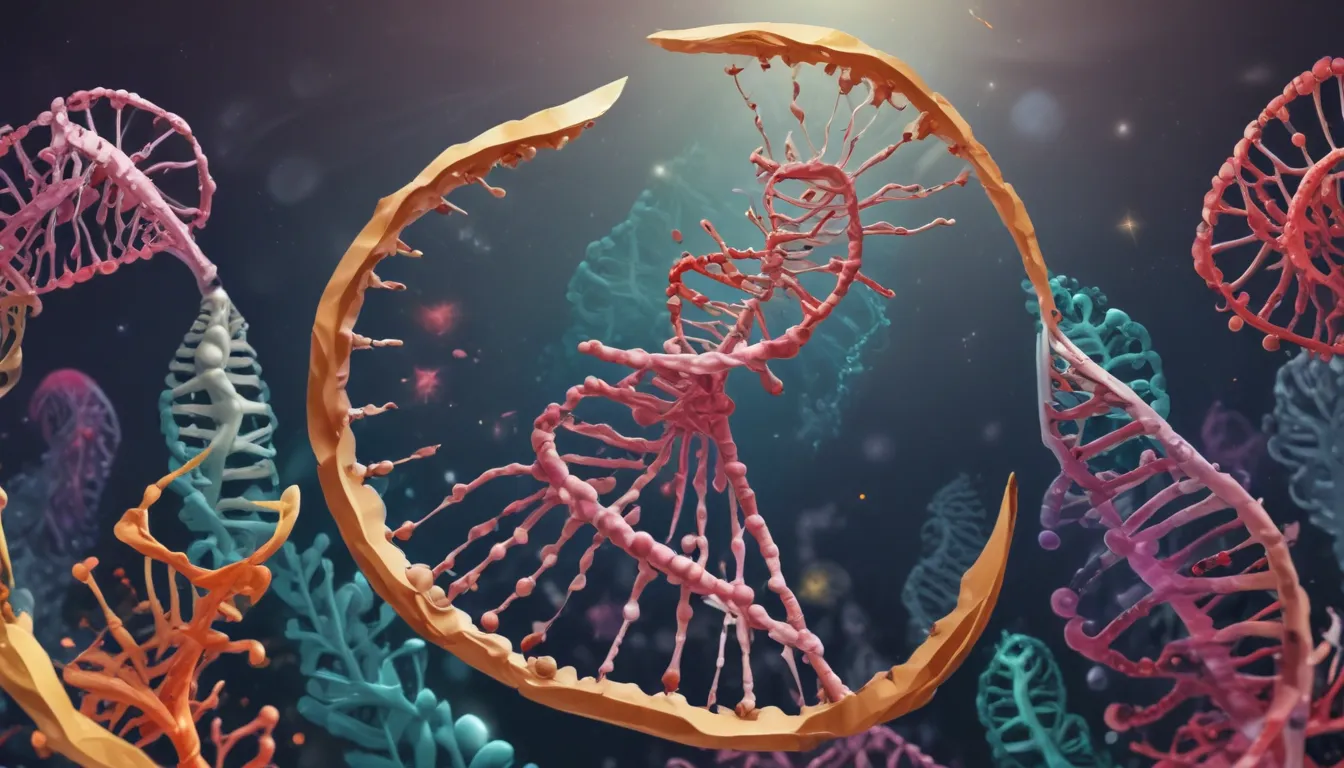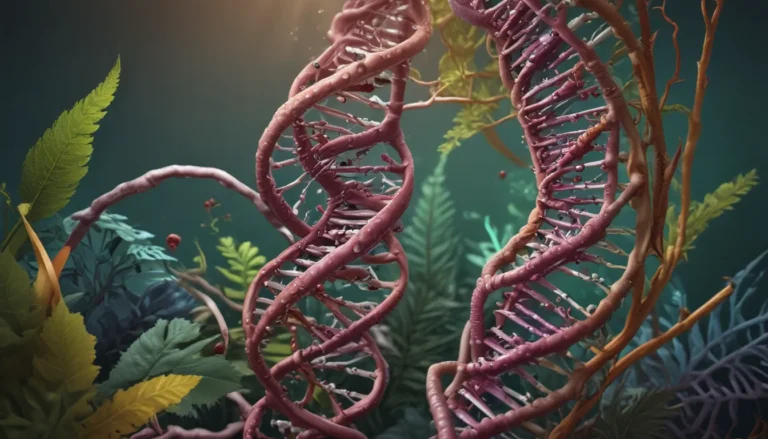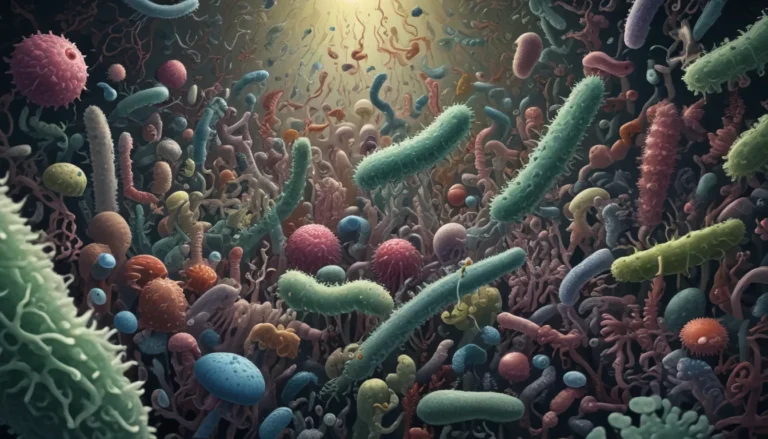A Note About Images: The images used in our articles are for illustration purposes only and may not exactly match the content. They are meant to engage readers, but the text should be relied upon for accurate information.
Welcome to the fascinating world of gene mutations, where the intricate dance of genetic material shapes life as we know it. Gene mutations have a profound impact on organisms, influencing everything from appearance to disease susceptibility and even evolutionary adaptations. While some mutations can lead to genetic disorders, others offer advantages that contribute to the resilience and diversity of species. In this article, we will uncover 17 surprising facts about gene mutations that will expand your understanding of this captivating field. Whether you’re a biology enthusiast, a curious mind, or simply intrigued by the wonders of genetics, prepare to be amazed as we explore the secrets hidden within our DNA.
Unraveling the Secrets of Gene Mutations
Gene mutations are diverse and complex phenomena that play a crucial role in shaping the characteristics and functioning of living organisms. Let’s delve into the key takeaways to gain a deeper insight into the world of gene mutations:
- Gene mutations can occur spontaneously or be inherited, impacting appearance, disease susceptibility, and evolutionary adaptations.
- Some mutations can be beneficial, providing advantages like disease resistance, while others can lead to cancer and enzyme dysfunction.
- Environmental factors, such as radiation and chemicals, can influence the occurrence of gene mutations.
- Gene mutations are not limited to humans but can occur in any living organism, from bacteria to animals.
- These mutations can have visible effects on physical appearance, alter disease susceptibility, and affect enzyme function.
- DNA repair mechanisms help manage the effects of gene mutations, but failures in these mechanisms can lead to genetic abnormalities.
- Advances in genetic testing enable the identification of gene mutations, allowing for early detection and intervention in genetic disorders.
- Gene mutations can be passed on to future generations, contributing to genetic diversity and inheritance of traits.
- Gene therapy offers a promising approach to targeting and treating genetic disorders caused by mutations.
- Evolution relies on gene mutations as a driving force for adaptation and survival in changing environments.
Unveiling the Mysteries of Gene Mutations
Spontaneous Gene Mutations:
Gene mutations can occur naturally without external influences, arising during DNA replication or due to errors in the genetic code. These spontaneous mutations play a significant role in genetic variability and can lead to both beneficial and detrimental effects on organisms.
Hereditary Gene Mutations:
Certain gene mutations can be inherited from parents, passing down genetic disorders and predispositions to future generations. Understanding the hereditary nature of gene mutations is crucial for identifying and managing genetic diseases within families.
Beneficial Gene Mutations:
While most gene mutations are associated with negative outcomes, some mutations can offer advantages to individuals. Beneficial mutations may confer disease resistance, enhance physiological traits, or provide evolutionary benefits that contribute to the survival of species.
Environmental Factors and Gene Mutations:
Exposure to environmental factors such as radiation, chemicals, and pollutants can increase the likelihood of gene mutations. These external influences can damage DNA structure, leading to genetic abnormalities and health risks in organisms.
Cancer and Gene Mutations:
Gene mutations are implicated in the development of many types of cancer. Mutations that activate oncogenes can stimulate uncontrolled cell growth, leading to tumor formation and the progression of cancerous diseases.
Gene Mutations Across Organisms:
Gene mutations are not limited to humans but can occur in all living organisms, including plants, animals, bacteria, and fungi. The universal nature of gene mutations underscores their fundamental role in genetic diversity and evolutionary processes.
Antibiotic Resistance and Gene Mutations:
In bacteria, gene mutations can confer antibiotic resistance, posing a significant challenge in the field of medicine. The emergence of antibiotic-resistant bacterial strains highlights the ongoing battle against microbial infections and the importance of understanding genetic mechanisms.
Embracing the Impact of Gene Mutations
Physical Appearance and Gene Mutations:
Certain gene mutations can manifest as visible changes in an individual’s physical appearance, altering traits such as hair color, eye color, or facial features. These variations in appearance serve as tangible examples of the influence of genetic mutations on phenotype.
Disease Susceptibility and Gene Mutations:
Specific gene mutations can increase or decrease an individual’s susceptibility to certain diseases. For example, mutations in genes like BRCA1 and BRCA2 are associated with elevated risks of breast and ovarian cancer, underscoring the importance of genetic testing and counseling.
Enzyme Function and Gene Mutations:
Enzymes play essential roles in biological processes, and gene mutations can impact their structure and function. Mutations that affect enzyme activity can disrupt cellular processes, leading to physiological imbalances and potential health issues in organisms.
Scale of Gene Mutations:
Gene mutations can vary in scale, ranging from single base pair changes to alterations in entire chromosomes. These differences in scale have diverse effects on organisms, influencing characteristics, functions, and overall genetic stability.
DNA Repair Mechanisms and Gene Mutations:
Cells possess robust DNA repair mechanisms that can identify and correct gene mutations. However, failures in these repair processes can result in the accumulation of mutations, increasing the risk of genetic abnormalities and disease development.
Gene Expression and Gene Mutations:
Gene mutations can disrupt the normal expression patterns of genes, influencing the production of proteins within cells. Altered gene expression can have far-reaching consequences on cellular functions, physiological processes, and overall organismal health.
Genetic Testing and Gene Mutations:
Advancements in genetic testing have revolutionized the detection and diagnosis of gene mutations in individuals. Genetic testing enables early identification of genetic abnormalities, guiding personalized healthcare interventions and disease management strategies.
Inheritance of Gene Mutations:
If a gene mutation is present in reproductive cells, it can be passed on to future generations, impacting the genetic diversity and inheritance of traits. Understanding the inheritance patterns of gene mutations is essential for predicting and managing genetic risks within populations.
Gene Therapy and Gene Mutations:
Gene therapy offers innovative approaches to targeting and treating genetic disorders caused by mutations. By correcting or replacing faulty genes, gene therapy holds promise for developing tailored treatments for a wide range of inherited conditions, offering hope for individuals and families affected by genetic diseases.
Evolutionary Significance of Gene Mutations:
Gene mutations play a pivotal role in driving the process of evolution, enabling species to adapt and thrive in changing environments. The genetic variations introduced by mutations contribute to the diversity and resilience of life forms, shaping the evolutionary trajectories of organisms over time.
Conclusion: Unveiling the Fascinating World of Gene Mutations
Gene mutations are not merely biological anomalies but intricate mechanisms that shape the complexity and diversity of life. These 17 surprising facts about gene mutations offer a glimpse into the intricate web of genetic interactions that define our world. From their impact on health and disease susceptibility to their role in evolutionary processes, gene mutations stand as silent architects of genetic diversity and resilience.
As we uncover the mysteries of gene mutations, we peer into the intricate tapestry of life itself, where each genetic alteration carries profound implications for individuals, species, and ecosystems. Through ongoing research, technological advancements, and a deepening understanding of genetics, scientists and researchers continue to unravel the secrets hidden within our DNA, paving the way for innovative treatments, personalized therapies, and a brighter future in healthcare.
FAQs: Exploring the World of Gene Mutations
-
What is a gene mutation, and how does it occur?
A gene mutation is a permanent alteration in the DNA sequence of a gene, arising spontaneously during DNA replication or due to external factors like radiation and chemicals. -
How do gene mutations impact human health?
Gene mutations can have both positive and negative effects on human health, influencing disease susceptibility, physiological traits, and enzyme function. -
Can gene mutations be prevented or reversed?
While some gene mutations can be prevented through lifestyle changes and genetic counseling, the reversal of gene mutations remains a challenge, with emerging technologies like gene therapy offering potential solutions. -
What role do gene mutations play in evolution?
Gene mutations are essential drivers of evolutionary processes, introducing genetic variations that enable species to adapt and thrive in changing environments. -
How can genetic testing help identify gene mutations?
Advancements in genetic testing enable the identification and diagnosis of gene mutations in individuals, facilitating early detection, personalized interventions, and disease management strategies. -
What is the significance of gene therapy in targeting gene mutations?
Gene therapy offers innovative approaches to correcting faulty genes and treating genetic disorders caused by mutations, holding promise for tailored treatments and improved outcomes for individuals affected by genetic diseases.
Explore the World of Gene Mutations and Beyond
Gene mutations hold the key to unlocking a world of mysteries, from the intricate mechanisms of genetic inheritance to the evolutionary pathways that shape life on Earth. As we delve deeper into the enigmatic realm of gene mutations, we gain a deeper appreciation for the complexities and wonders of genetics and biology.
Bask in the awe-inspiring journey of discovery as you explore the diverse landscapes of evolutionary biology, uncover rare and intriguing cat breeds that showcase the beauty of genetic diversity, and immerse yourself in the endless wonders of the natural world. Each fact, discovery, and insight offers a unique perspective on the fascinating tapestry of life, inviting you to explore, learn, and be inspired by the boundless possibilities of science and nature.
Embrace the Wonder of Genetics with Trustworthy Content
At the heart of our commitment to knowledge and discovery lies a dedication to delivering trustworthy, engaging content that captivates and educates. Each fact, insight, and discovery on our platform is contributed by real users like you, bringing a rich tapestry of diverse perspectives and information to share. Our team of dedicated editors meticulously review each submission, ensuring that the content we offer is not only fascinating but also accurate and reliable.
Trust in our commitment to quality, authenticity, and integrity as you embark on your journey of exploration, discovery, and learning. Together, we illuminate the wonders of the natural world, celebrate the marvels of science, and embrace the boundless possibilities of genetics and biology. Join us in unraveling the mysteries of gene mutations and beyond, as we venture into the endless realms of knowledge and wonder that await us.
Let curiosity be your guide as you embrace the wonder of genetics and the marvels of the natural world, discovering the rich tapestry of life’s intricacies and complexities that shape our world. Welcome to a world of discovery, knowledge, and inspiration, where each fact, insight, and revelation offers a new perspective on the beauty and diversity of the biological universe. Embrace the wonder, explore the mysteries, and celebrate the awe-inspiring journey of genetic exploration and biological discovery with us.






